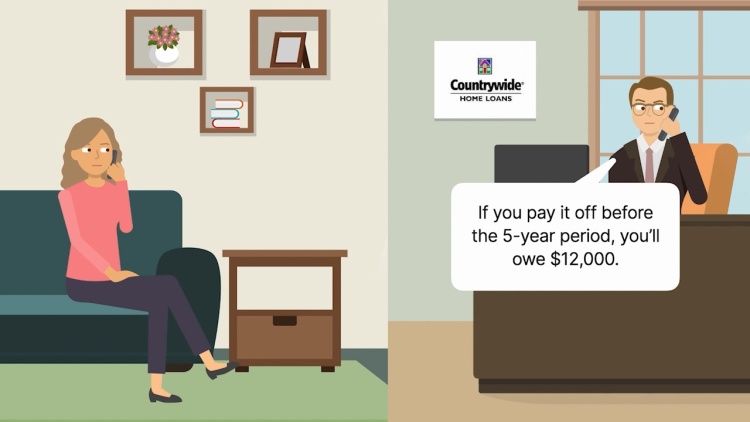Davis v. G.N. Mortgage Corp.
United States Court of Appeals for the Seventh Circuit
396 F.3d 869 (2005)
- Written by Angela Patrick, JD
Facts
Thomas and Cathy Davis (plaintiffs) obtained an adjustable-rate mortgage loan from G.N. Mortgage Corporation (G.N.) (defendant). At the loan closing, closing agent Patricia Bogdanovich presented the Davises with two stacks of loan documents that Bogdanovich claimed were identical and established a two-year prepayment-penalty period. The Davises signed one stack for G.N. and kept the unsigned stack for their records. The Davises did not compare the two sets of documents or read them thoroughly during the closing. G.N. sold the mortgage to Countrywide Home Loans (Countrywide) (defendant). Near the loan’s two-year anniversary, the Davises contacted Countrywide about paying off the loan. Countrywide told the Davises that they had signed an addendum agreeing to a five-year prepayment-penalty period. Based on this addendum, the Davises would owe a $12,000 penalty if they paid off the loan before its five-year anniversary. The Davises reviewed the unsigned documents they had in their file and found two different prepayment-penalty addendums that they had not read before. One addendum was for two years, and the other was for five years. The Davises assumed they had signed both because they had signed all the documents in the supposedly identical stack that Bogdanovich kept. G.N. and Countrywide claimed that no signed two-year addendum existed. The Davises sued G.N. and Countrywide, in part, for common-law fraud, alleging that the signed five-year addendum had been obtained fraudulently. The federal district court granted summary judgment to G.N. and Countrywide. The Davises appealed to the Seventh Circuit. On appeal, the parties disagreed about whether the Davises’ parol evidence of Bogdanovich’s statements to them was admissible.
Rule of Law
Issue
Holding and Reasoning (Coffey, J.)
What to do next…
Here's why 907,000 law students have relied on our case briefs:
- Written by law professors and practitioners, not other law students. 47,100 briefs, keyed to 996 casebooks. Top-notch customer support.
- The right amount of information, includes the facts, issues, rule of law, holding and reasoning, and any concurrences and dissents.
- Access in your classes, works on your mobile and tablet. Massive library of related video lessons and high quality multiple-choice questions.
- Easy to use, uniform format for every case brief. Written in plain English, not in legalese. Our briefs summarize and simplify; they don’t just repeat the court’s language.





